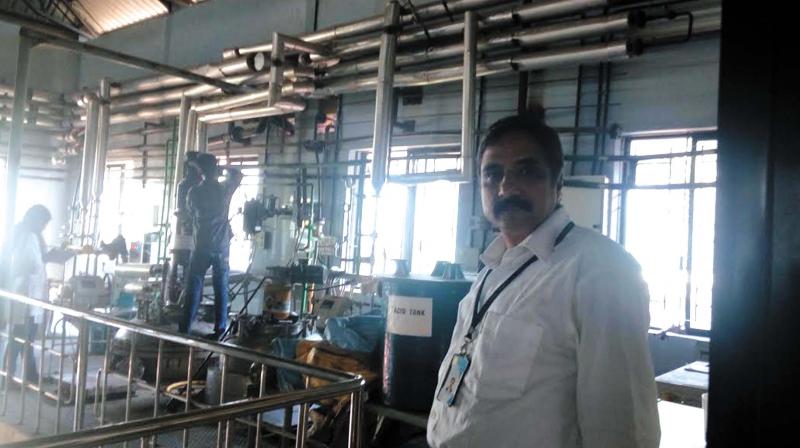New enzyme to make ethanol cheaper
CSIR-NIIST scientists produce enzyme complex from Western Ghat soil;

Thiruvananthapuram: An indigenous enzyme complex produced at CSIR-NIIST could help bring down the cost of ethanol production from biomass to a great extent. To produce the enzyme complex called cellulase, the institute relies on a microbial system which was isolated from soil samples collected from Western Ghats. Normally, enzymes to produce ethanol need to be purchased from multinationals. Since its cost is more than 60 percent of the cost of production, depending on commercial enzymes is not viable.
K. Madhavan Nampoothiri, principal scientist and head of Microbial Processes and Technology Division, says, “cellulase helps to hydrolyze the cellulosic portion of the complex biomass substrate. Fermentable sugars are liberated. These can be converted to ethanol using yeast cultures". The pilot-level plant established at the institute can produce 5-10 litres of ethanol a day from 70-80 kilogram of biomass. The plant has been used to produce ethanol from various kinds of biomass, like rice straw, wheat straw, sorgum and sugarcane bagasse.
“The versatility of the plant is a big advantage. For this reason, we have been able to be part of different collaborative projects dealing with different biomass,” says Madhavan. For this reason, CSIR-NIIST is one of the Indian institutions to be part of an Indo-Australian R&D programme. The project was conceived and initiated by former head and chief scientist Ashok Pandey around eight years ago. Currently, Rajiv K. Sukumaran is leading the bio-energy programme in CSIR-NIIST along with Madhavan. The plant was fully established by 2011. The institute has held discussions with several giants from the industry, including Bharat Petroleum and Reliance regarding technology transfers.


